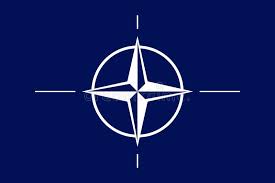What if the Soviets won the cold War: Part Two, The new world incumbent
The brand new era for the world could be as the ink dried on the treaty of Kyoto. People thorough the west cheered in the streets, as millions of men returned home to their families. But nowhere could the sound of marching bands and cheers be heard louder than in Red Square. Thousands of tanks, Katyushas, and rocket launchers paraded in straight lines as artillery and fireworks could be heard for miles. A three hundred man marching band lined the streets, floats, and banners being seen, praising the glory of communism, the USSR, and Ioseph Stalin. Stalin gave a thirty-minute-long speech, about the people's sacrifice, the strength of the military, and the power of global communism. It would seem as though everyone in the world was at peace, but the truth was, everyone was gearing up to prepare for the creation of a new world order.
The administration of the new communist states was harder in some areas than others. In Bulgaria, Romania, Yugoslavia, and Hungary, the communist governments already existed and were quite stable. In France and Itlay, communism was already quite popular, and administration was not difficult. But in Germany, Austria, Poland, and Japan, communism was never all that popular, and thus revolts, strikes, and general dissent were common. Police states were established, and soviet troops could be seen constantly, but over the next couple of years, people seemingly got used to the new soviet system just fine. A new faction was created with these new members, the Warsaw pact.
Initially, western diplomacy with the new soviet states was that of mild disagreement, but as the days ticked by, people grew more and more suspicious of Stalin. In 1948, President Truman announced a brand new plan for the eradication of communism, the Containment doctrine. The idea behind C.D. is that if the western nations prevent communism from spreading then inevitably the new socialist states would turn more and more to America and away from the Soviet Union. Nowhere could this be seen more intensely than in the Chinese civil war, in which the Western-backed Chiang-Kai-Shek faced off against the Warsaw Pact-backed Mao Ze dong's communist party.
The war did not go over well for Chiang-Kai-Shek. Despite America's near-limitless support, Mao was simply too strong thanks to his new land and soviet support, and the Republic of China was too weak from Japan's invasion. By 1950, the republic of China lost almost all territory except for Guangdong province, and with the crushing defeat at Hainan, the war was ended. Chiang-Kai-Shek was hung for treason on February 13th, 1950.
President Truman, embarrassed by his defeat, created NATO, an alliance for the remaining liberal Democracies in the west, with Canada, the French Republic, Greece, Norway, Denmark, Portugal, Canada, Australia, and South Japan joining.
With the new tensions in Europe, Stalin started to look at the weak links in his Iron curtain. Seeing the exposed flank in the Adriatic sea, Stalin and Tito got in contact with the Albanian communist Enver Hoxa to overthrow the ruling king Zog. The agreement they came to is that Enver Hoxa would receive funding and weapons from the Warsaw Pact if he could provide an army, and if he successfully overthrew the king, he would join the Warsaw Pact. Hoxa stayed true to his word, and in December 1951, he and 18,000 Albanian communists stormed Zog's palace, forcing him to abdicate to Hoxa. He obliged, and Hoxa immediately joined Moscow, banned opposition, and killed former King Zog.
The British empire, tired and coffers empty, finally left Raj after a ruling guerrilla campaign. The resulting nation split in half, with a Hindu and Muslim portion, the poor Hindu state (named India) flipped to communism as an alternative for the peasant workers. This new state, the People State of Hindustan, would gravitate towards Mao, and eventually joined the Sino-Soviet alliance. in July 1952
After years of effort, the USSR developed their first nuclear bomb, dropping it in the north Siberian plains. The soviets immediately entered hyper-production, resulting in a nuclear arms race between NATO and the Warsaw pact. Two years later, the People's Republic of China developed its first nuclear bomb as well.
In 1953, the colony of French Indochina revolted, led by the charismatic Ho Chi Minn, the french pulled out, and the Americans demanded the formation of a south Indochina, to which the North Vieth Minn obliged.
On December 28th, 1953, Ioseph Stalin, at age 74, died of a stroke. With no set successor, the chairman of the most powerful nation on Earth, was a vacant seat.


Comments
Post a Comment